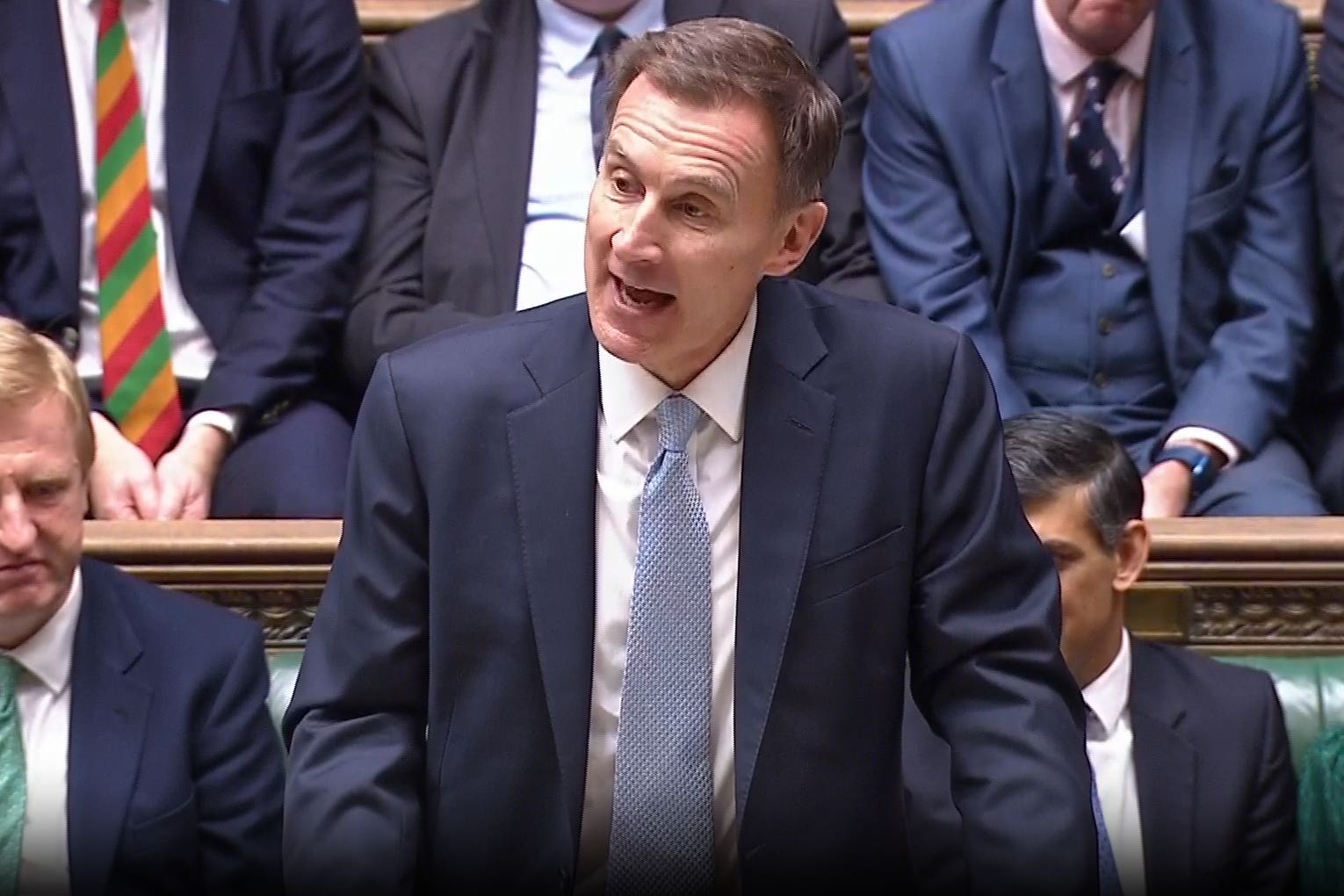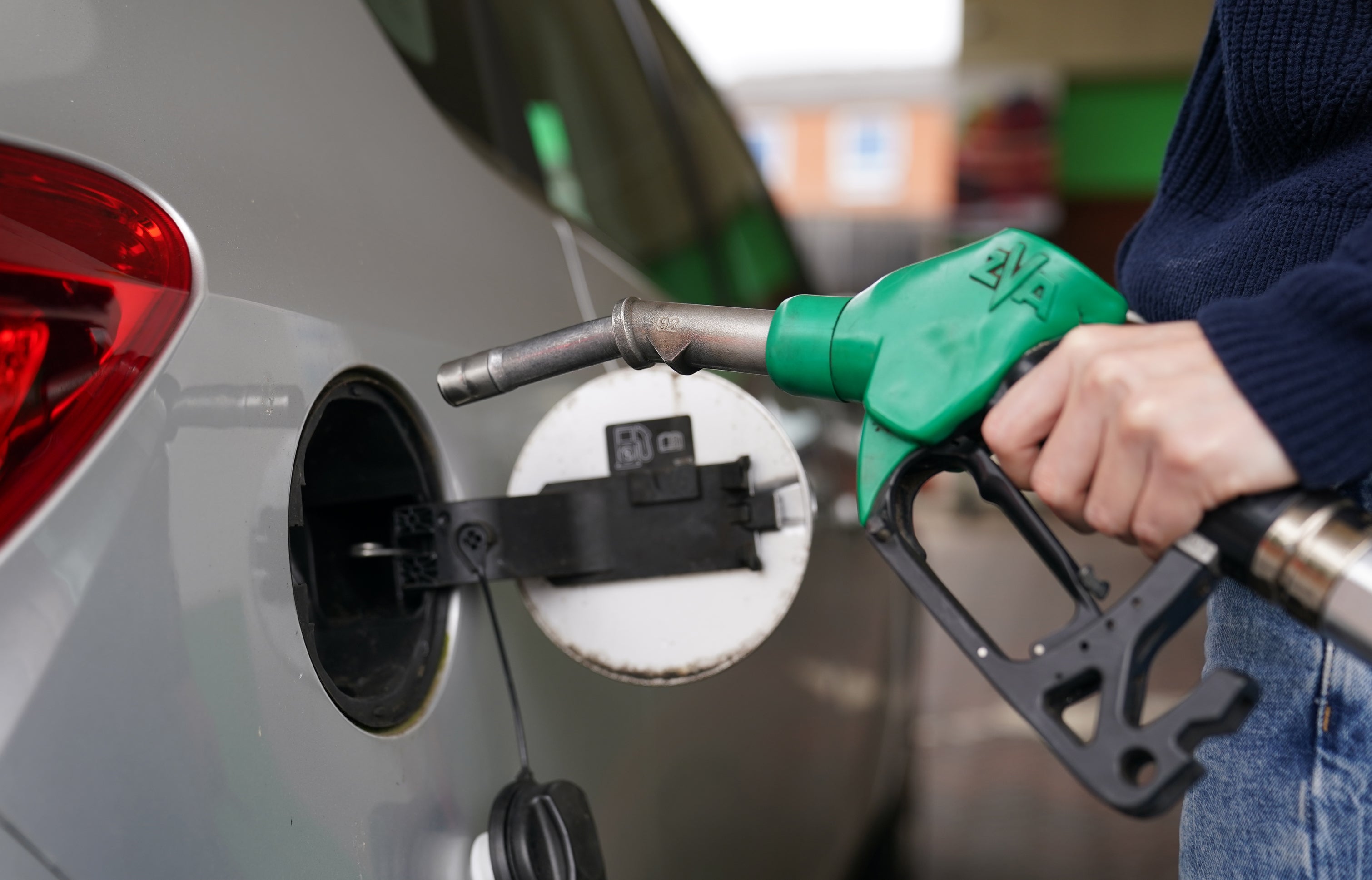Fuel duty freeze extended in Budget in boost to motorists
Jeremy Hunt is seventh Tory chancellor in a row to keep fuel duty frozen as he unveiled his spring statement
Your support helps us to tell the story
From reproductive rights to climate change to Big Tech, The Independent is on the ground when the story is developing. Whether it's investigating the financials of Elon Musk's pro-Trump PAC or producing our latest documentary, 'The A Word', which shines a light on the American women fighting for reproductive rights, we know how important it is to parse out the facts from the messaging.
At such a critical moment in US history, we need reporters on the ground. Your donation allows us to keep sending journalists to speak to both sides of the story.
The Independent is trusted by Americans across the entire political spectrum. And unlike many other quality news outlets, we choose not to lock Americans out of our reporting and analysis with paywalls. We believe quality journalism should be available to everyone, paid for by those who can afford it.
Your support makes all the difference.Jeremy Hunt has handed a Budget boost to motorists as the chancellor opted to keep fuel duty frozen for the 14th year in a row.
In a move expected to cost the Treasury around £5bn, Mr Hunt once again extended the 5p cut in fuel duty introduced by Rishi Sunak in 2022 as wholesale prices soared in the wake of Russia’s invasion of Ukraine.

Despite an unforgiving economic landscape, the chancellor is under pressure to entice voters with tax giveaways ahead of this year’s general election, with recent polling putting the Conservative Party’s popularity at a 45-year low.
Announcing the measure during his Budget statement on Wednesday, Mr Hunt said: “The labour mayor of London wants to punish motorists even more with his Ulez plans but lots of families and sole traders depend on their car. If I did nothing fuel duty would increase by 13 per cent each months.”
He added that he had listened to his fellow Tory MPs and a newspaper campaign in the decision to freeze fuel duty for another 12 months, which he claimed would save the average British household £50 next year.
The extension will provide some relief to motorists who saw the cost of petrol soar to £1.91 per litre in June 2022. That has now fallen to £1.45 per litre, which remains well above a low of £1.01 in 2016, according to the RAC.
But the motoring group has expressed concern that the fuel duty cut is not being passed on to customers, warning last December that forecourts had pocketed an extra £184m in the two months prior by failing to reflect the cut in their prices.

And, at a cost of around £74 per UK resident if estimated to total £5bn, it is no small feat for the chancellor to keep the duty frozen. As reported by Politico, Mr Hunt was only deemed to have met his fiscal rules in the Autumn Statement due to an assumption by the Office for Budget Responsibility (OBR) that fuel duty would increase in March.
The OBR warned last autumn that freezing fuel duty would wipe out 43 per cent of the chancellor’s “headroom” in 2028-29 and would mean the national debt would no longer be falling, the website reported.
The decision is also of no minor consequence to the UK’s climate ambitions, with analysis by the website Carbon Brief suggesting that cuts and freezes to fuel duty since 2010 have resulted in road traffic CO2 emissions being 24 per cent higher – and the UK’s overall CO2 output 7 per cent greater.
The announcement came hand-in-hand with Mr Hunt’s announcement that he would also be extending an alcohol duty freeze in a win for pubs struggling with the cost of living squeeze.
The chancellor said he was extending the freeze, benefitting 38,000 pubs across the UK, for a further year after keeping the duty unchanged in his Autumn Statement.
Traditionally, alcohol duty rates rise each year in line with inflation but over the past decade chancellors have opted to freeze them.
Many pubs have struggled to recover from lost business during the Covid pandemic and have been hammered by rising costs amid the cost of living. The rising price of a pint has put many punters off going out for a drink and thousands of pubs have been forced to close as a result.

Join our commenting forum
Join thought-provoking conversations, follow other Independent readers and see their replies
Comments